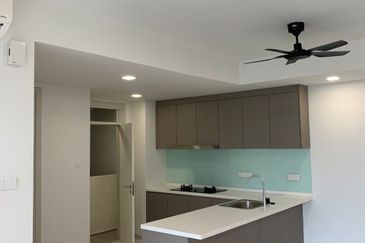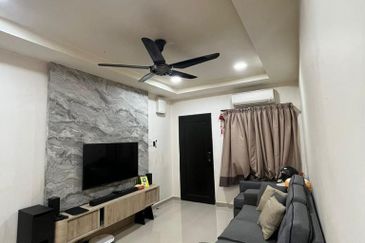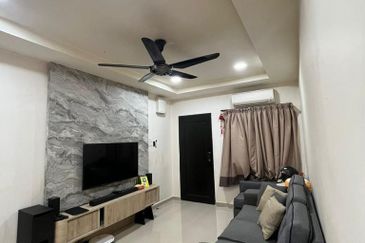
1. WHERE to get financing?
First and foremost, you need to have some monies in your pocket before you commit to any home purchase. You need to provide for the initial booking, deposit, professional fees, stamp duties, property valuation fees, etc, depending on whether you are buying from the housing developers or the secondary market. It is almost impossible to get 100% financing to fund your entire home purchase.
Your initial monies can be your own savings, a friendly loan from friends and family, your advance salary from your employer, a personal loan from the co-operative that you are a member to, or even the permitted withdrawal from your EPF contribution that is allowed for first-home purchases. If you are qualified, you might want to explore the various schemes announced under the Budget over the last few years from the very early Skim Rumah Pertamaku to the more recent MyDeposit scheme announced last year.
Banks are the obvious choice to take care of the rest of your home financing requirements. However, housing loans are also available from insurance companies, licensed finance companies, licensed money lenders as well as the building society, although the interest rates, margin of financing, loan tenure, loan repayment and requirements are all unique and not the same as banks.
If you are a civil servant, you can even apply for a housing loan from the government.
2. WHAT to look for in financing?
It is always a good practice to look for financing before you commit to a home purchase. There are many variances of home financing packages and you can always shop early to identify one that suits you.
First, you need to get your set of proof of incomes ready so that you can start checking with the banks on the indicative range of loan amount that they are ready to grant you for your intended home purchase. This is extremely helpful to assist you to shortlist properties that are within your affordability and credibility with the bank. Otherwise, you might misinterpret your own credibility and end up disappointed.
Pay a visit to Bank Negara and conduct a check on the CCRIS system to help ensure your intended loan application is smooth without any unnecessary remarks in your record. PTPTN is another marker too for those of you who have received a prior study loan.
If you are buying from the secondary market, do not take too long to shop for the best financing package as you have the normal transaction time of three months to pay the balance purchase price or you are subjecting yourself to late payment interest or are even at risk of a termination with forfeiture of your deposit. If possible, sign your set of loan agreement as soon as you have signed your sale and purchase agreement, preferably no longer than two weeks after that.
3. WHO should borrow?
Although it seems obvious that the person who buys should be the one who borrows, there are some strategic considerations involved.
The borrower can be an individual, a group of individuals, a Sdn Bhd, a Bhd or even a Limited Liability Partnership (LLP). It could also be a borrower with the homebuyer providing a third party security in terms of charging the home purchase to the bank.
The loan approval, the margin of financing, the loan tenure and the rate of interest are all dependent on the profile of the borrower.
Typically, joint borrowers with multiple incomes would have a better chance of loan approval than a single income single borrower. An income-earning husband would be welcomed as a borrower in a case where the home is purchased under the name of the housewife with no income. The person with better financial standing could either be one of the borrowers or one of the guarantors. If the borrower is a Sdn Bhd, Bhd or LLP, it is also normal for the directors or partners to give joint or several guarantees for the loan. Using a company to buy a home for residential purpose would definitely mean a lower margin of financing that requires the purchaser to have a larger sum of initial monies.
4. WHICH type of financing?
There is no such thing as a standard home financing package as there are many different offerings in the market to cater for various needs. For a start, there are conventional loans as well as Islamic financing that operates on syariah compliance principles but available to all including non-Muslims.
Within the conventional sphere, pay attention to the details in things like term loan, flexi, overdraft, daily rest interests, principal reduction, early redemption penalty and effective lending rate. Take your time to understand the unique features of the housing loan packages on offer and select one that is most suited to your unique profile.
Pay attention to the various conditions for the disbursement of the loan sum for little things like opening of a new bank account which could delay your progress in completing the home purchase as that might potentially cause late payment interests.
5. HOW to select your financing package?
If you are buying from the housing developer, most of the time there will be a panel of banks that are ready to consider your loan application strictly based on your profile. If you are buying from the secondary market, there is a need to have a property valuation report done on a case-to-case basis to satisfy the lending bank along with your profile as a borrower. You need to also approach the banks on your own, although the real estate agents as well as your lawyers might give you professional references within their network.
Consider your unique needs in financing, your preferred income and repayment pattern as well as your objective in your home purchase to enable your best selection of the home financing package. There is no best loan package but there is certainly one package that works best for you.
As for the need for mortgage insurance like MRTA/MLTA, it is up to your discretion unless it is prescribed by the loan package as a condition for approval. The premium involved could actually be part of the loan sum or you can choose to pay with your own fund. There are pros and cons in mortgage insurance and it is certainly worth considering for a genuine homebuyer.
Chris Tan is a lawyer, author, speaker and keen observer of real estate locally and abroad. Mainly, he is the founder and now Managing Partner of Chur Associates.
If you have questions that you would like to pose to Chris, please go to the Tips section of www.theedgeproperty.com to pose your questions.
Disclaimer: The information here does not constitute legal advice, please seek professional legal advice for your specific needs.
This story first appeared in TheEdgeProperty.com pullout on Oct 7, 2016, which comes with The Edge Financial Daily every Friday. Download TheEdgeProperty.com pullout here for free.
TOP PICKS BY EDGEPROP

Andana Condominium @ D'Alpinia
Puchong South, Selangor

Pangsapuri Angsana, Bandar Mahkota Cheras
Cheras, Selangor

South Brooks @ Desa ParkCity
Desa ParkCity, Kuala Lumpur

Paloma @ Tropicana Metropark
Subang Jaya, Selangor





















